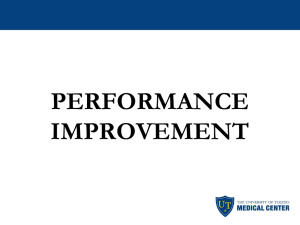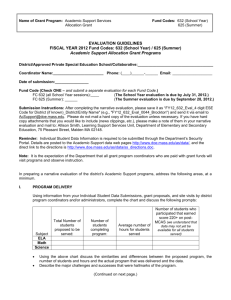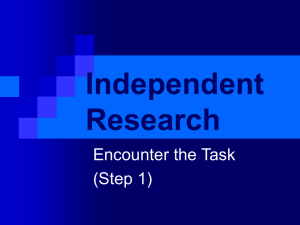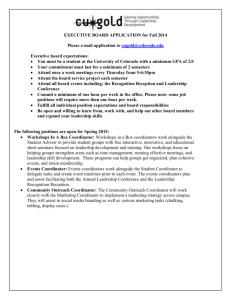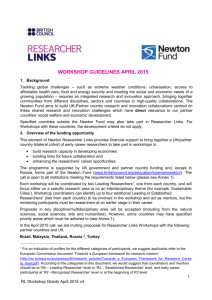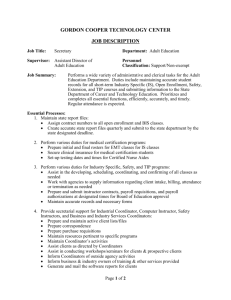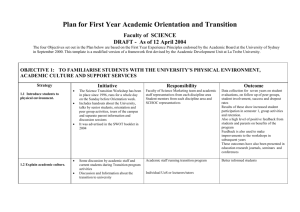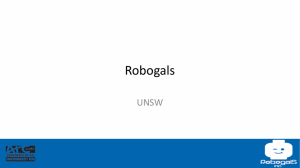Guidelines for tri-lateral workshops
advertisement
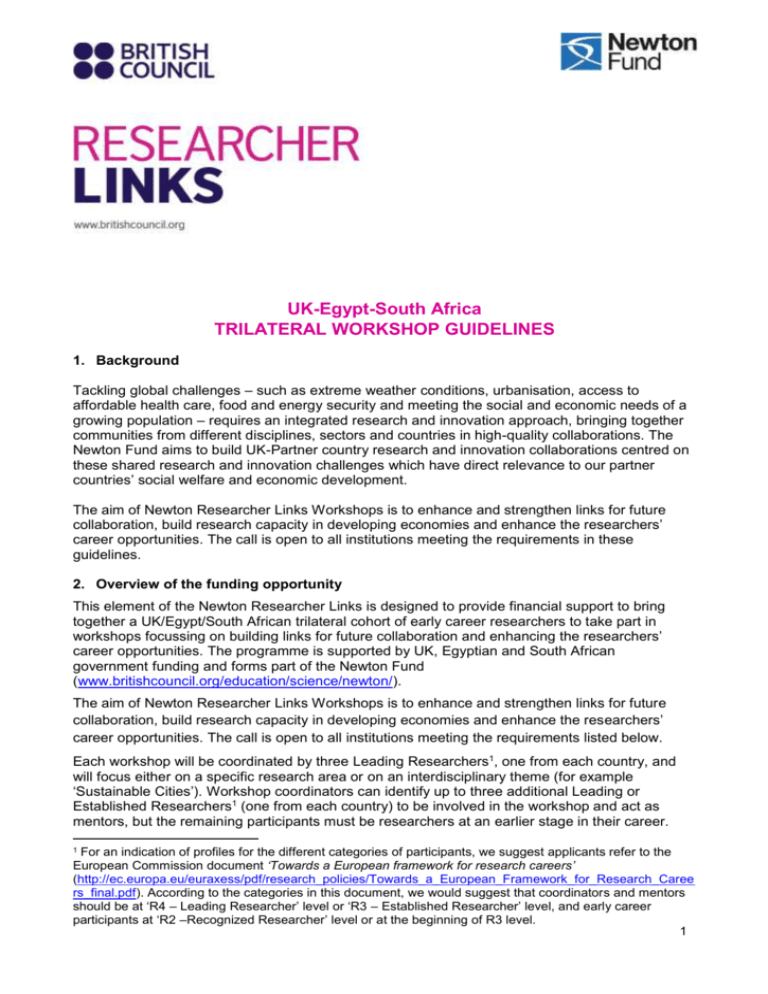
UK-Egypt-South Africa
TRILATERAL WORKSHOP GUIDELINES
1. Background
Tackling global challenges – such as extreme weather conditions, urbanisation, access to
affordable health care, food and energy security and meeting the social and economic needs of a
growing population – requires an integrated research and innovation approach, bringing together
communities from different disciplines, sectors and countries in high-quality collaborations. The
Newton Fund aims to build UK-Partner country research and innovation collaborations centred on
these shared research and innovation challenges which have direct relevance to our partner
countries’ social welfare and economic development.
The aim of Newton Researcher Links Workshops is to enhance and strengthen links for future
collaboration, build research capacity in developing economies and enhance the researchers’
career opportunities. The call is open to all institutions meeting the requirements in these
guidelines.
2. Overview of the funding opportunity
This element of the Newton Researcher Links is designed to provide financial support to bring
together a UK/Egypt/South African trilateral cohort of early career researchers to take part in
workshops focussing on building links for future collaboration and enhancing the researchers’
career opportunities. The programme is supported by UK, Egyptian and South African
government funding and forms part of the Newton Fund
(www.britishcouncil.org/education/science/newton/).
The aim of Newton Researcher Links Workshops is to enhance and strengthen links for future
collaboration, build research capacity in developing economies and enhance the researchers’
career opportunities. The call is open to all institutions meeting the requirements listed below.
Each workshop will be coordinated by three Leading Researchers1, one from each country, and
will focus either on a specific research area or on an interdisciplinary theme (for example
‘Sustainable Cities’). Workshop coordinators can identify up to three additional Leading or
Established Researchers1 (one from each country) to be involved in the workshop and act as
mentors, but the remaining participants must be researchers at an earlier stage in their career.
1
For an indication of profiles for the different categories of participants, we suggest applicants refer to the
European Commission document ‘Towards a European framework for research careers’
(http://ec.europa.eu/euraxess/pdf/research_policies/Towards_a_European_Framework_for_Research_Caree
rs_final.pdf). According to the categories in this document, we would suggest that coordinators and mentors
should be at ‘R4 – Leading Researcher’ level or ‘R3 – Established Researcher’ level, and early career
participants at ‘R2 –Recognized Researcher’ level or at the beginning of R3 level.
1
Proposals in any discipline/multidisciplinary area will be accepted (including from the natural
sciences, social sciences, arts and humanities).
All Researcher Links-funded workshops will have the following three overarching objectives:
Support international development-relevant research – Workshops are intended to
support research areas relevant to the economic development and welfare of partner
countries.
Contribute to capacity building of early career researchers – The proposal should include
a description of how the workshop will contribute to the personal and professional
development of the participants. Workshop coordinators should indicate how they envisage
this occurring, including any plans for long-term mentoring of early career researchers (either
within each country, or cross-nationally).
Establish new research links or significantly develop existing links, with the potential
for longer term sustainability – The aim of the workshop is to stimulate longer term links
between the UK, Egypt and South Africa (both bilaterally and trilaterally), as well as to
contribute to the personal and professional development of the participants. The workshop
proposal should include an explanation of the mutual benefits to both the researchers and
institutions. Coordinators should outline the specific outputs anticipated from the workshop.
They should also explore any potential longer term benefit that might arise, thinking about who
might benefit and how they might benefit and describing the actions that will be taken to ensure
that potential impact is realised.
3. Who can propose a workshop?
Leading Researchers (see footnote 1 on previous page) should apply to be workshop
coordinators and propose a theme for the workshop using the online application form. The
proposal must be a joint application, with one coordinator based at a UK institution, one based in
Egypt and one based in South Africa. Applications should be submitted with the support of the
home institutions and this should be confirmed by checking a tick box in the online application. In
this round, only one application may be submitted per Leading Researcher, but there is no limit to
the number of applications submitted per institution.
4. Location of the workshops
It is expected that workshops will predominantly take place either in Egypt or in South Africa.
5. Duration of the workshops
The minimum duration of a workshop is 3 days and the maximum duration is 5 days.
6. Timing of the workshops
Workshops should take place between 1st February 2016 and 31st January 2017.
7. Who will take part in the workshops?
Between 8 and 10 researchers from each country can take part in each workshop. The workshop
2
will be led by the three coordinators, one from the UK, one from Egypt and one from South Africa.
In addition, the coordinators can propose an additional Leading/Established Researcher (see
footnote on page 1 for a definition) from each country to act as mentors. The remaining – and
majority of – workshop places will be allocated to early career researchers through an open call
once the British Council has notified the applicants that their proposal was successful. Criteria for
the selection of early career researchers will be made available to workshop coordinators.
However, we would expect early career researchers to have been awarded their PhD not more
than 10 years prior to the workshop (or to have equivalent experience), with allowances made for
career breaks. If a researcher does not hold a PhD, but has research experience equivalent to a
PhD holder and works in a field where a PhD is not a pre-requisite for established research activity,
they will still be considered eligible.
Role of the workshop coordinators: Coordinators submit the online application form along with
a budget request, determine the workshop theme and shape the content/agenda of the workshop.
and propose mentors. Workshop coordinators – overseen by the relevant British Council country
office and in-country partners, if appropriate – will also be responsible for selecting early career
researchers to participate in the workshop if the proposal is successful.
Coordinators will be responsible for all organisational aspects of the workshop logistics (including
travel arrangements for participants and booking of the workshop venue). The costs of the
workshop organisation will be covered by a Researcher Links grant.
Role of the Mentors: Established Researchers can give keynote lectures but should also act as
mentors to the early career researchers during the workshop, sharing their experience and
knowledge. Ideally, they would also remain in contact with the early career researchers after the
workshop has finished, in order to share networks and contacts.
8. Language
Workshops will be held in English. Although it is expected that all participants will have a sufficient
standard of English to engage fully in discussion, consideration should be given to non-native
speakers. Allowances to ensure equal opportunity of participation need to be negotiated with the
British Council on a case-by case basis.
9. Thematic focus of the workshops
Workshops may be specific to a particular field of research or interdisciplinary in nature.
They should focus on one of the following five themes:
Water management
Healthcare
Agriculture/food production
Renewable energy
Satellites and remote sensing
10. Relevance to economic development and social welfare
Researcher Links Workshops are intended to support research areas relevant to the development
3
of partner countries
We define research with development relevance as research (applied or fundamental) that has
the potential to contribute to the economic development and social welfare of low- and middleincome countries2, benefitting poor and vulnerable populations in these countries. In order to be
considered for funding under this programme, all proposals must clearly articulate a
plausible pathway of how the research may lead to positive impact on these populations
within a reasonable timeframe (within 3-15 years). Applications which do not meet this
criterion cannot receive Newton funding.
11. Content of the workshop
Workshop coordinators will be expected to lead on developing the research content of the
workshops. However, as workshops are intended to be a career development opportunity with a
focus on promoting international collaboration, there will be an expectation that the workshops
follow set guidelines to facilitate this. The following is a brief overview of the workshops
guidelines, more detailed guidance will be provided to successful applicants:
Sessions should be designed to be as interactive as possible, and participants encouraged
to share knowledge, experience and ideas. Workshop coordinators and mentors should
share their expertise. A professional facilitator may be used during the workshop if it is felt
that this would support optimal interaction.
Suggested sessions:
o
Formal keynote lectures by the workshop coordinators and mentors. These should
take up no more than a half-day in total (ideally spread over the workshop).
o
Research sessions where the early career researchers are able to share their
current research. This could be in poster format or oral presentations.
o
Networking sessions where researchers are able to interact and explore
opportunities for collaboration (e.g. speed-networking sessions)
o
Overview of the research base and funding opportunities: a brief introduction to the
research base in the UK, Egypt and South Africa – how research is funded, size,
strengths, international collaborative activity, links with industry. The British Council
and national partners (if applicable) will provide summary slides on funding sources
which can be supplemented by the workshop coordinators if required.
o
Career development opportunities in the UK and partner country. This could be an
informal discussion amongst the researchers or a more structured look at career
development.
2
As defined by the OECD DAC list of official development assistance (ODA) recipients
(http://www.oecd.org/dac/stats/daclistofodarecipients.htm).
4
o
How to form international collaborations (intercultural skills, challenges,
opportunities, best practice etc.). The British Council can provide materials for this
session.
Optional content within workshops (where appropriate these sessions would be welcomed
but applications will not be disadvantaged if they do not include them):
o
Depending on the research field or theme of the workshop, coordinators may wish
to include a session which invites industry or other non-academic partners to talk
about cross-sectoral collaboration.
o
Public engagement activity
o
Cultural activity
o
Visit to a relevant research facility.
12. Recruitment of participants
Following the selection process, successful workshop coordinators will be responsible for
recruiting participants to the workshops. Participants must be based in the UK or in the host
country; if coordinators wish to bring in participants from a third country this must be discussed
first with the British Council, but the travel costs of the third country researcher may not be
covered under the budget. Early career researchers recruited to participate in the workshop must
have a PhD or equivalent research experience. No more than a third of early career researchers
from each country may be recruited from within the institutions of the coordinators and mentors.
There must be an open call for participants which must be disseminated through various defined
channels3 (British Council will support the dissemination) and coordinators are encouraged to
identify and employ additional avenues of communication so that workshops are advertised as
widely as possible.
The selection of early career researchers to participate in the workshop will be undertaken by the
coordinators and must be fair and transparent. The British Council will provide a template
application form for participants which coordinators can adapt as appropriate, and British Council
in-country teams will be available to offer advice and oversight where necessary. Once
recruitment is completed, workshop coordinators must submit the list of participants to the British
Council for approval.
Partner country participants will need to have a sufficient standard of English to participate in the
workshops.
3
Examples of dissemination channels:
Euraxess: www.euraxess.org.uk
UK Research Staff Association: http://www.vitae.ac.uk/researchers/205761/UK-Research-StaffAssociation.html
British Institute at Ankara website: http://www.biaa.ac.uk/home/
British Academy Africa Desk: http://www.africadesk.ac.uk/pages/home/
5
Equal opportunities and diversity are at the heart of the British Council’s cultural relations
ambitions. While recognising that some research fields are dominated by one particular gender,
coordinators are encouraged to work towards as equal a gender balance as is possible, promote
diversity, and ensure that no applicants are excluded from participation on the basis of ethnicity,
gender, religious belief, sexual orientation or disability.
13. Funding
Newton Researcher Links workshops will be organised by the workshop coordinators. Applicants
are required to provide a budget request upon submission of their proposal.
The costs of the workshops will be covered through a Researcher Links grant and paid to the
workshop coordinator’s home institutions.
Funding offered under the Researcher Links programme is intended as a contribution towards the
costs of the workshops. Workshop coordinators are expected to add a contribution in-kind towards
the overall cost of the workshop by dedicating their time to the planning and delivery of the
workshops. Staff costs and honoraria cannot be covered by the Researcher Links grants. Only
a small lump sum contribution of £2,000 can be requested to cover administrative costs.
The grant contribution given to support the organisation of the Researcher Links workshops is
calculated using a flat rate maximum contribution. Please see Annex below for maximum
amounts that can be requested in each budget category. The flat rate is designed to make
funding easier to manage. Workshop coordinators will be able to use some underspend under one
budget category to cover the costs under a different category (e.g. any underspend on the budget
to cover the travel of UK-based researchers can be used to cover other general organisational
costs).
The maximum number of participants per workshop is 40 (including coordinators, mentors and
early career researchers). A minimum of 10 researchers from each of the three countries should
attend the workshop. This should be reflected in the budget request.
The grant budget is calculated using 5 budget categories: International travel, Domestic travel,
Subsistence, Event rate and Additional costs. Please note that the unit costs given in constitute the
maximum amounts that can be requested in each category and that all budget requests will be
assessed for feasibility and appropriateness. While the maximum contribution cannot be exceeded,
applicants can request less in which case the amount requested cannot be increased at a later
stage.
International travel
This budget category covers travel costs for international workshop participants travelling to the
country where the workshop takes place. The international travel grant contribution is calculated
using unit costs corresponding to 1 workshop participant and it is based on the travel rate stated for
the country where the workshop takes place. This also covers the costs for local transport on the
6
day of travel international participants, visa costs and travel insurance4. Workshop coordinators
and workshop participants should take out adequate insurance as the British Council cannot take
responsibility for any problems which may occur when the participants are in-country. International
(economy return) airfares should be booked by the workshop coordinators as far in advance as
possible to minimise costs.
Domestic travel
This budget category covers travel costs for local workshop participants based in the countries
where the workshop takes place. Partner country participants might not be based in the location
where the workshop takes place, and this budget category will cover the costs of their domestic
travel. The domestic travel contribution is calculated using unit costs corresponding to 1 workshop
participant and is specific to the country where the workshop takes place.
Subsistence
This budget category covers the costs for accommodation, medical insurance and daily expenses
such as phone and local transports. Subsistence is calculated using unit costs for each workshop
participant and is specific to the country where the workshop takes place.
Event rate
This budget category covers the costs for the venue hire and meals. The event rate grant
contribution is calculated using unit costs corresponding to 1 workshop participant and is specific to
the country where the workshop takes place.
Contribution to additional event costs
Workshop coordinators can request a lump sum of £200 to cover additional costs not already
covered, e.g. projector, flip charts and other materials needed for the organisation of the
workshops (including networking and social activities).
Administrative costs
Workshop coordinators can request a lump sum of £2,000 to cover administrative costs such as
telephone bills, printing costs and stationery.
Payment of the grant
Payment of the grants for the grant contribution to Researcher Links workshops will be processed
in 2 instalments: pre-financing payment, and post-workshop payment or recovery of the balance.
Pre-financing
A pre-financing payment equivalent to 90% of the approved budget request will be transferred after
Please note that all local travel during the workshop – for international and domestic participants – should
be covered using the subsistence budget.
7
4
the grant agreement has been signed by the workshop coordinators’ home institution.
Post-workshop payment or recovery of the balance
The amount of the final payment to be made to the workshop coordinator will be established on the
basis of a final report to be submitted within 30 days after the workshop. If the workshop has not
been delivered as planned, or if fewer participants attended than originally envisaged, resulting in a
reduction in costs, the final payment may be withheld and if necessary a proportion of the grant
recovered.
14. Reporting
Workshop coordinators must submit a final report within 30 days after the workshop. The final
report template will be sent to successful applicants as part of the grant agreement and will
include a financial and a narrative part along with a section requesting information on the
workshop participants. As the Researcher Links grant for workshops is calculated using unit rates,
workshop coordinators will not need to submit detailed receipts for each item of expenditure but
only proof that the activities took place (e.g. boarding cards, invoice for the venue hire indicating
the number of days for which the venue has been hired and proof of domestic travel for the local
participants, scanned sign–in sheet to evidence the number of participants – details on the exact
requirements will be provided to successful applicants).
If there is insufficient evidence in the final report, additional information may be requested prior to
the final balance payment, or any underspend of the grant may be returned to the British Council.
Desk checks, financial audit and monitoring and evaluation visits will be carried and will involve a
percentage of institutions that received the Newton Researcher Links grant. Please note that
different reporting rules may apply where workshops are funded by in-country partner
organisations.
Individual workshop participants will be asked to complete an online baseline survey, a baseline
follow up survey 6 months after the workshop and a post-workshop feedback questionnaire.
Workshop coordinators will be asked to send the link to the baseline survey to their participants
and also to administer the post-workshop questionnaire.
15. Application process
Applicants must submit a completed online application form. This can be found on the British
Council Researcher Links webpage (www.britishcouncil.org/society/science/fundingopportunities/researcher-links-workshops-call). This application form must be completed online –
email submissions will not be accepted. The online form allows applicants to enter information and
save it for a later date until final submission. There are strict character limits for each section which
cannot be exceeded. Any problems with the online submission system should be reported to the
following email address: UK-ResearcherLinks@britishcouncil.org.
8
Prior to submission, applicants must obtain permission to submit the application on behalf of
the UK and partner country institutions. In addition, applicants must also solicit from the
coordinators’ institutions their willingness to receive the funds and to sign a grant
agreement with the British Council. Before the completed online application form can be
submitted to the system, applicants will be asked to confirm the above in the online form.
Once the online application is submitted, applicants will receive a confirmation email containing the
application ID number. This reference number should be used in all communications with the
British Council. Applicants who have not received an automated email confirmation should contact
the British Council at UK-ResearcherLinks@britishcouncil.org.
15.
Application assessment and notification of results
After the deadline for submission of applications the British Council will send acknowledgment of
receipt by email. Applications will then be assessed against the eligibility and quality criteria (Annex
2 and 3). Applicants whose application is rejected at the eligibility stage will have 1 week to appeal
against the decision.
Successful applicants will be notified approximately 10 weeks after the call deadline. Please take
this into consideration when planning your workshop.
16. Selection Process
Selection begins with an eligibility check by the British Council against the eligibility criteria given in these
Guidelines, including Annex 1 and the Eligibility Checklist at Annex 2.
Eligible proposals then undergo independent external quality review on the basis of quality, fit to
development needs and country priorities and the overarching Researcher Links workshops objectives.
There will be a two-step selection process, with initial scoring of proposals taking place in the UK
followed by further selection in partner countries.
Eligible workshop proposals will be assessed in the UK by one of five Selection Panels:
Arts and Humanities
Biological and Medical Sciences
Engineering, Physical and Space Sciences
Environment, Agriculture and Food Sciences
Social Sciences
Workshop coordinators should indicate in their online application form which Selection Panel their
proposal should be assessed by, and the subject(s) their research covers. Up to 3 subject areas
can be selected in priority order, but the applicant should indicate only one Selection Panel.
In the UK Workshop proposals will be assessed by two reviewers against the quality criteria in Annex 3.
Each review results in a total score between 0 and 60. The final score will be decided by the full Review
Panel, based on the outcome of the panel discussion taking into consideration the reviewer scores
9
and the development relevance of individual proposals.
. Applications scoring less than 30 points will be considered not fundable. However, please note that
achieving an average score of 30 or above does not imply that the proposal will be funded.
The final selection decision will be made in-country in collaboration with national stakeholders and partner
funding organisations. National and partner research priorities will be considered in the final decision
in addition to the general assessment criteria under this programme. Please see Annex 1 for
priority areas by country.
As detailed in section 7 of this guideline, only proposals which have clearly articulated relevance
(direct or indirect) to international development will be considered for funding.
17.
Call deadline
The submission deadline is 16.00 UK time on the 28th of September 2015. Proposals submitted
after the deadline will not be considered for funding.
18.
Data protection
As part of the online application form, the British Council will ask applicants’ permission to:
Use the information provided in the application for processing the application, making any
consequential award, for the award payment, monitoring, maintenance and review of the
award. In some cases information will be shared with national programme partners for the
purpose of selection and monitoring of the award.
Make information on the successful applications available to the public on their website and
other publicity, and in reports and documents.
Contact applicants in the future to inform them about future British Council opportunities.
Under UK Data Protection laws applicants have the right to ask for a copy of the information we
hold on them, for which we may charge a fee, and the right to ask us to correct any inaccuracies in
that information. More information on this is available on the British Council data protection
webpage: http://www.britishcouncil.org/home-data-protection.htm.or alternatively can it be
requested to the local British Council office or the Data Protection Team
dataprotection@britishcouncil.org.
10
Annex – Budget calculation
To calculate the budget contribution that can be requested in each category, applicants should use the
unit costs given in table A for each country where the workshop takes place and multiply them by the
number of international and domestic participants and by the number of days the workshop lasts.
Please note that the unit costs given below constitute the maximum amounts that can be requested in
each category and that all budget requests will be assessed for feasibility and appropriateness. While
the maximum contribution cannot be exceeded, applicants can request less in which case the amount
requested cannot be increased at a later stage.
EXAMPLE:
The budget for a workshop lasting 4 days and taking place in Egypt and attended by 10 UK-based
researchers, 10 Egypt based researchers and 10 South African based researchers would be calculated as
follows:
10 x £800 (UK researchers international travel to Egypt)
10 x 1000 (SA researchers international travel to Egypt)
10 x £100 (Egypt researcher’s domestic travel)
30 x {£25 (event rate) x 4 days (duration of the workshop) }
30 x £70 x 4 days (subsistence costs)
+ £200 (additional costs)
+ £2,000 (administrative costs)
= £32,600 total maximum contribution that can be requested
Table A: Unit costs (in £) within each country
Country
Travel
(domestic)
Subsistence
costs per day
Event costs per
person per day
Additional
event costs
Admin
costs
Egypt
100
70
25
200
2,000
South Africa
150
80
30
200
2,000
International Travel costs by country:
UK-Egypt
800
UK-South
Africa
1,000
11
Egypt –
South Africa
1,000
12
